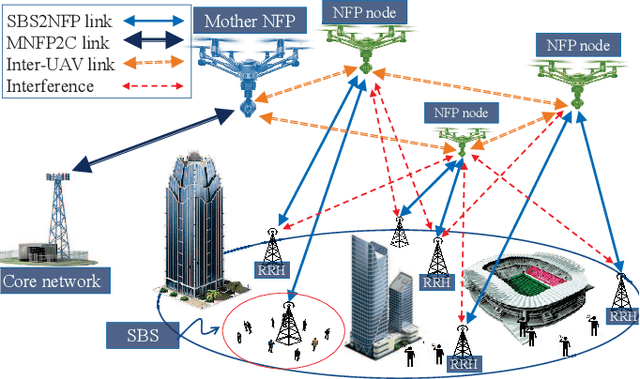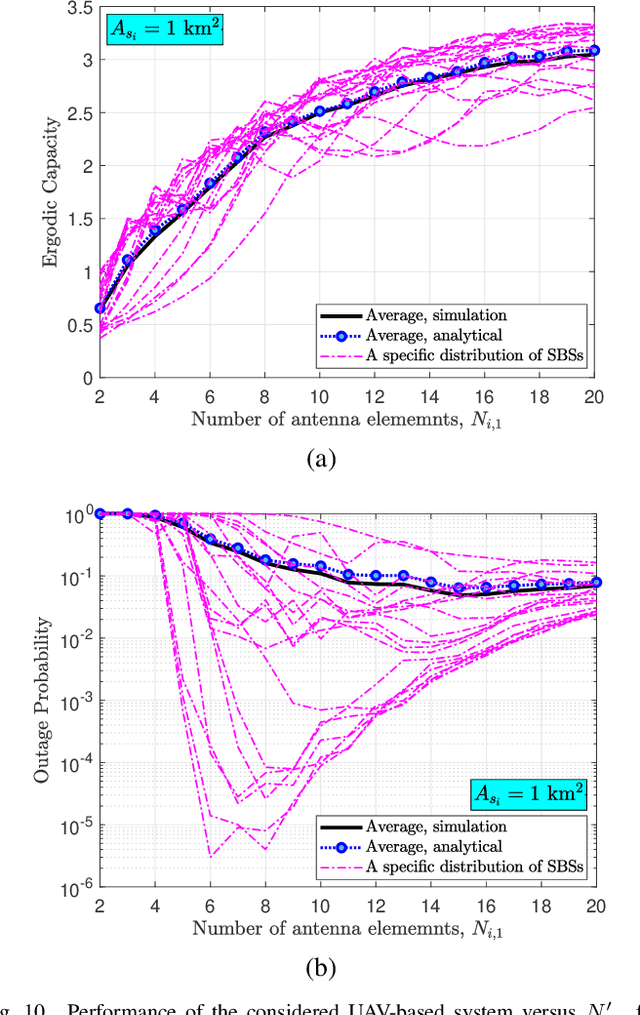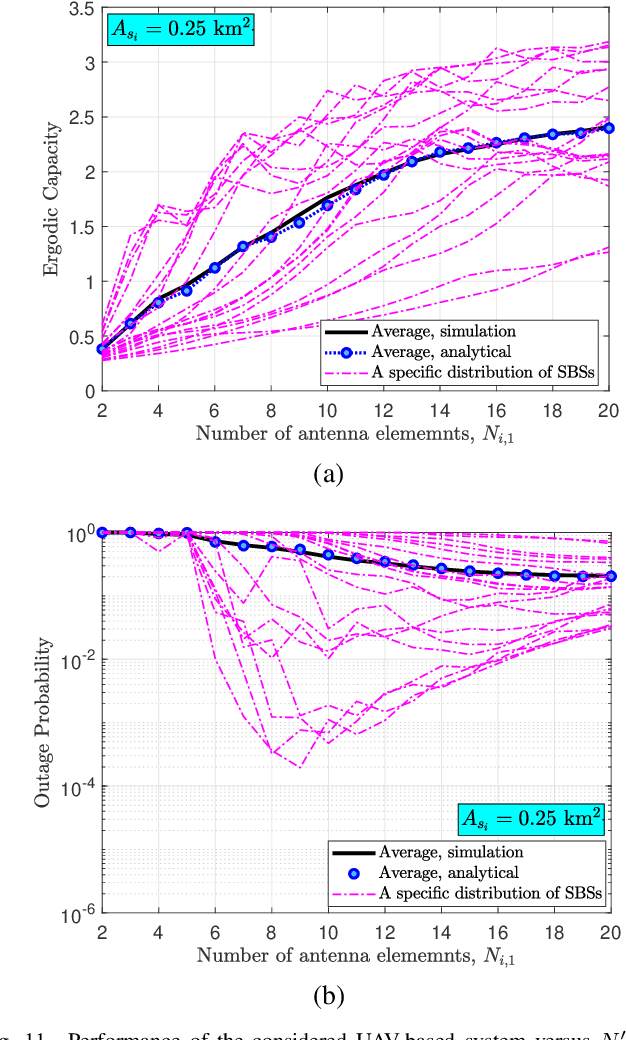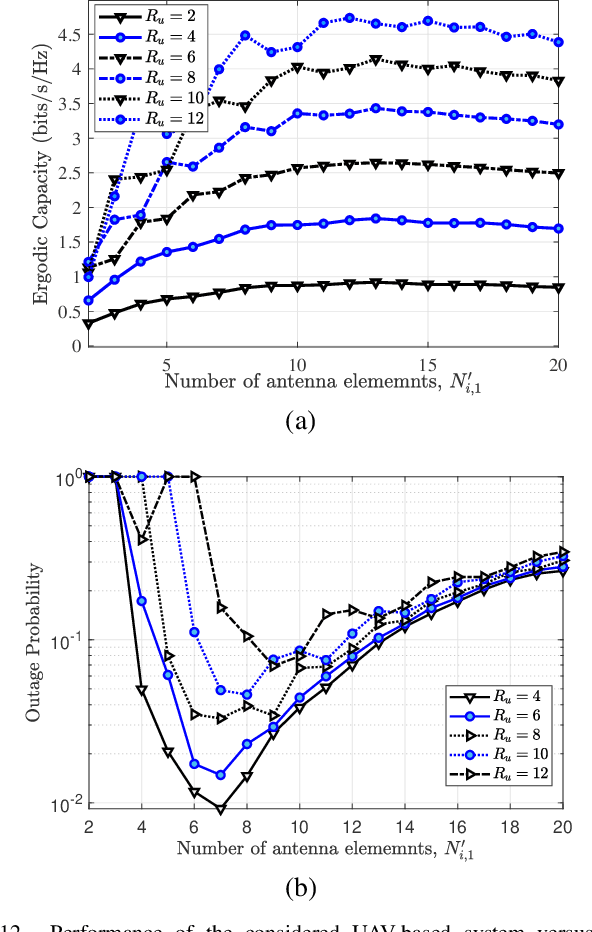3D Uplink Channel Modeling of UAV-based mmWave Fronthaul Links for Future Small Cell Networks
Paper and Code
Mar 27, 2022



In this study, we consider an unmanned aerial vehicle (UAV)-assisted heterogeneous network that is offered as a cost-effective and easy to deploy solution to solve the problem related to transferring traffic of distributed small cells to the core network. For any given distribution of small cell base stations (SBSs), we first characterize an accurate millimeter wave (mmWave) channel model for SBS to networked flying platform (NFP) by taking into consideration real parameters such as UAV's vibrations, distribution of SBSs, position of UAVs in the sky, real three-dimensional (3D) antenna pattern model provided by 3GPP along with interference caused by antenna side lobes and frequency reuse. Then, for the characterized channel, we derive an analytical closed-form expression for the end-to-end signal-to-noise plus interference ratio (SINR). Based on that, we derive the closed-form expressions for the outage probability and channel capacity of the considered UAV-based mmWave uplinks. The accuracy of the derived analytical expressions is verified by Monte Carlo simulations. Finally, we investigate the effects of different channel parameters such as antenna pattern gain, strength of UAV's vibrations, UAVs' positions in the sky, distribution of SBSs, and frequency reuse on the performance of the considered UAV-based uplink channel in terms of average capacity and outage probability.
 Add to Chrome
Add to Chrome Add to Firefox
Add to Firefox Add to Edge
Add to Edge